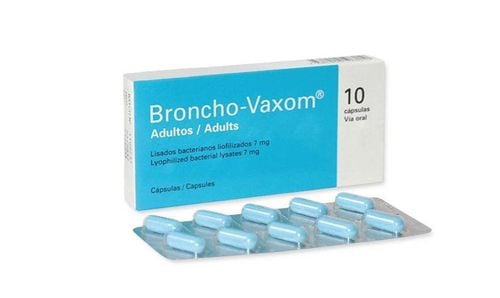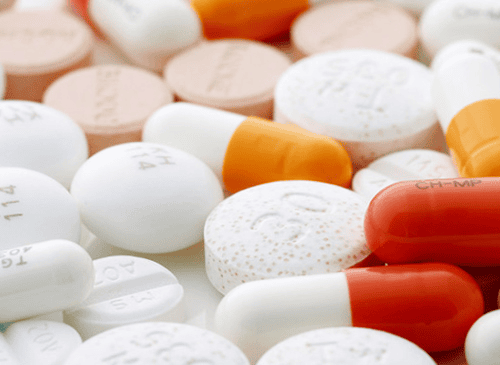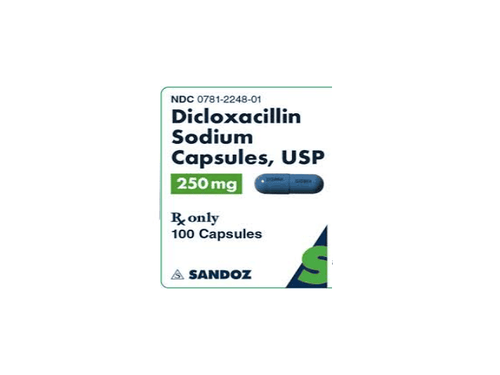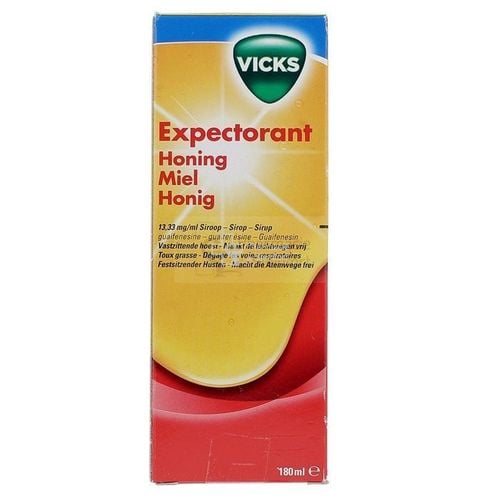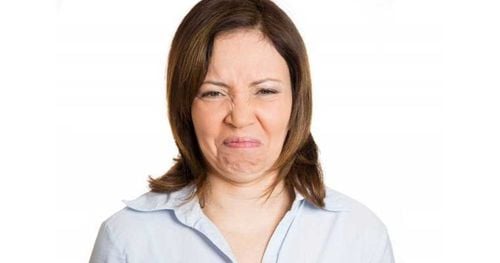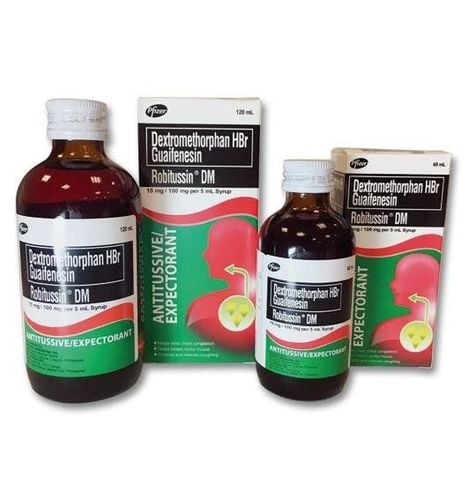This is an automatically translated article.
The article is professionally consulted by Master, Doctor Doan Ngoc Quynh Tram - Department of Pediatrics - Neonatology - Vinmec Nha Trang International General Hospital.
Nasopharyngeal inhalation in young children through a mask is also known as aerosol. This is a tool used to support the treatment of some diseases in the acute respiratory tract such as laryngitis, bronchitis, sinusitis or chronic such as asthma. When using aerosols for young children, parents also need to be very careful to avoid unnecessary side effects.
1. What is aerosol?
The respiratory nebulizer is a widely used instrument in pediatrics. The main indications of the nebulizer include: children with acute asthma attacks, respiratory failure; laryngeal stridor, it is necessary to dilute sputum before performing physical therapy; children are not able to use metered dose inhaler, the drug to be used is not available in metered dose inhaler form; High doses of inhaled antibiotics are needed to treat or control persistent infections.For asthma in children, recent studies show that nebulizers are not more effective than metered-dose inhalers used with spacers. The international organization specializing in researching and providing standard asthma treatment regimens as well as the British, American and Canadian Asthma Associations all recommend using metered-dose inhalers instead of nebulizers. Ear - Nose - Throat specialists often prescribe aerosol therapy for children when treating rhinitis, sinusitis or pharyngitis (using an ENT nebulizer).
Trắc nghiệm: Nhận biết sớm dấu hiệu chậm phát triển thể chất và trí tuệ ở trẻ
Nếu 6 tuổi không biết đếm số, 7 tuổi vẫn chưa phân biệt được giữa thực tế và tưởng tượng thì có thể bé chậm phát triển thể chất và trí tuệ hơn so với bạn bè cùng lứa. Bạn đã nhận biết được các dấu hiệu bất thường sớm này chưa? Cùng làm nhanh bài trắc nghiệm sau để trang bị thêm kiến thức cho mình nhé!
The following content is prepared under supervision of Thạc sĩ, Bác sĩ y khoa, Ma Văn Thấm , Nhi , Phòng khám Đa khoa Quốc tế Vinmec Dương Đông(Phú Quốc)
2. Notes when using aerosols for children
When using a nebulizer, the child will wear a mask or hold a mouthpiece and breathe for about 5-10 minutes until the medicine is gone. If your baby can't sit up straight or is uncooperative, he won't get the full dose of medication prescribed. If the mask is located 1.2 cm from the baby's face, half of the drug will not be able to reach the lungs, and the drug loss rate will be up to 80% if the mask is 2.5 cm away from the face. So when using a home nebulizer, it is important to note:Choose the right time:

Create a quiet environment: The reason is that the treatment usually lasts from 5-10 minutes, up to 15 minutes, so during this time, the child needs to focus on breathing deeply so that enough medicine can get into the lungs. . The noisy environment makes the child move, so it will be difficult for the child to focus on breathing.
Choose the right size mask: The mask needs to be the right size for the face and be placed neatly on the child's face, otherwise most of the dew drops will not get into the nose or airways. A mouthpiece should be used instead of a mask when nebulizing antibiotics or corticosteroids to prevent the drug from escaping into the air and to minimize the amount of medication deposited on the child's face.
Check drug type and dose before nebulizing: Use only the drug as well as the dose prescribed by the doctor. The bronchodilator salbutamol can cause some major side effects such as chest pain, bronchospasm, extreme anxiety, increased blood pressure, pain in the legs, or shortness of breath.
Help your child relax and stay calm: Young children will find it difficult to sit still during aerosolization, which can make you irritable with your child. Parents should try to relax before nebulizing their child and remain calm during treatment. Instead of getting angry, try to focus your child's attention on something more engaging, so he doesn't worry about the mask on his face. You can show your child their favorite story book, put them on their lap, and play with them a special game dedicated to aerosol time. Older children can read stories, listen to music through headphones or play a light game on the phone. TV is not a good solution because the sound of the nebulizer will drown out the sound of the TV from a distance.
Absolutely follow the doctor's instructions: Some parents think that the more nebulizers are performed, the faster the baby will recover, so they set up a nebulizer schedule for their children and did not strictly follow the schedule set by the doctor. suggested by the doctor. This can lead to overdose and drug dependence, with long-term damage to the lungs (most inhaled drugs are corticosteroids, overdose can cause very dangerous side effects). Therefore, parents need to absolutely follow the doctor's instructions about the drug to be nebulized and the aerosol schedule.
Don't make inhalation therapy your child's emotional support or weapon: If a child has been used to nebulization for a long time, he or she may begin to rely on it. Nebulization may be the first thing a child does when he or she begins to have trouble breathing or wants to get your parents' attention. Children can also use this excuse to avoid being scolded, so parents should not let children decide when to neuter.
Note when using essential oils:

Essential oils, although decongestant, will not be used for infants or very young children because they can cause respiratory depression. Do not abuse indiscriminately, because it will cause addiction and reduce the child's sense of smell.
Ensure hygiene for the nebulizer, use a separate wire and mask: After each inhalation, it must be washed with an antiseptic solution if you want to use it again. After a period of use, the machine must be thoroughly cleaned and the air filter replaced to avoid bacterial and mold infection.
Aerosol is an effective method in the local treatment of many respiratory diseases for children. However, in the process of using aerosols, parents need to understand the above important notes and should not abuse this method to avoid having adverse effects on the health of children. If they notice abnormal signs, parents should take their children to medical facilities for advice and examination.
Parents can bring their children to Vinmec International General Hospital. The Pediatrics Department at Vinmec has a full range of separate specialties such as ENT, respiratory to help treat respiratory diseases, fast and effective treatment of cough and runny nose. In addition, Pediatrics is also a key area of Vinmec Health System, always bringing satisfaction to customers and highly appreciated by industry experts. With modern equipment, sterile space, minimizing the impact as well as the risk of disease spread. Along with that is the dedication from the doctors with professional experience with pediatric patients, making the examination no longer a concern of the parents.
To visit with experienced pediatricians at Vinmec. Please make an appointment at the website to be served.
Please dial HOTLINE for more information or register for an appointment HERE. Download MyVinmec app to make appointments faster and to manage your bookings easily.






